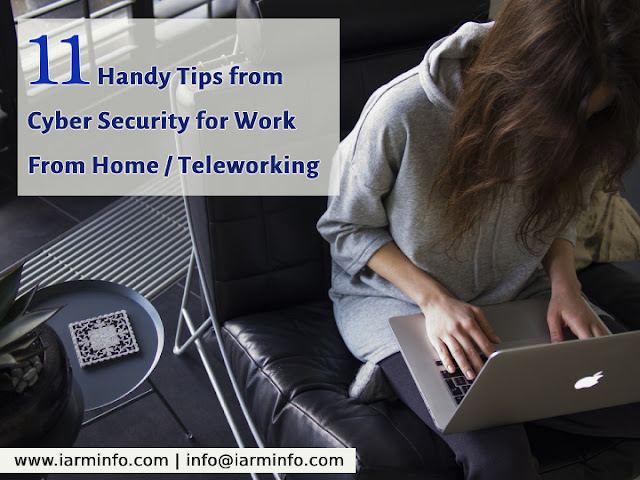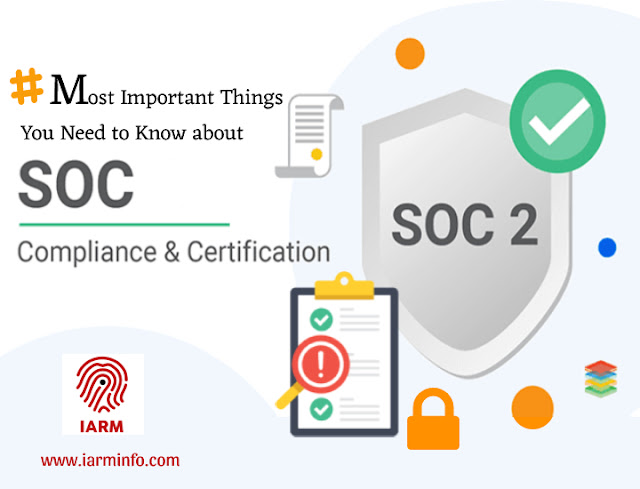Howdy all! Today, we are going to look at how the Cyber Security Vulnerability and threats impacts the remote working options and
what are the Best Practices for Work From Home / Teleworking.
With the recent trends worldwide, the Teleworking otherwise termed as remote working or working from home is on the raise.
Should we consider this option as a threat or an opportunity for an organisation.
It is definitely an opportunity but be aware to assess the threat involved in extending this option to your employees.
Everyone will talk about productivity, engagement, motivation, cost savings etc, but all these can prove just the opposite if the
Cyber Security Vulnerability and threats are not evaluated prior to extending these facilities to the employees.
So what do you think one should do before extending the teleworking or remote working options for employees?
what are the Best Practices for Work From Home / Teleworking.
With the recent trends worldwide, the Teleworking otherwise termed as remote working or working from home is on the raise.
Should we consider this option as a threat or an opportunity for an organisation.
It is definitely an opportunity but be aware to assess the threat involved in extending this option to your employees.
Everyone will talk about productivity, engagement, motivation, cost savings etc, but all these can prove just the opposite if the
Cyber Security Vulnerability and threats are not evaluated prior to extending these facilities to the employees.
So what do you think one should do before extending the teleworking or remote working options for employees?
- Do not open the flood gate to accommodate all users during BCP. Validate Business requirement and need for each user and decide
- Perform a Risk Assessment weighing the pros and cons of extending the teleworking options to employees
- Prepare an Information Security Training kit and ensure that all employees are aware of their responsibilities and role in adhering to the
organisation Information Security Policy.
- Perform Network Penetration Test for all your devices are exposed to the public network which forms part of authentication service for the
teleworking services.
- If you are doing IT services for your customer, Ensure that you get formal approval from your customer before you enable remote access
- Have a clear check and validate procedure before extending the end users to use their personal laptop/desktop. Sanitise their device and
have a clear monitoring mechanism to check if all the required patch, Antivirus and minimum security checks are performed on the end
users personal device
users personal device
- Prior to give business application access to external network, perform a detailed and complete Application Penetration Test
- Avoid Remote Desktop Protocol (RDP) over the internet. RDP, if not configured and secured, can act as a gateway for cyber criminals to
access sensitive internal resources
- Does your organization have Mobile Device Management Solution in Place for Mobile users? If not it is recommended to implement MDM while
users are given access to organization information using their Mobile Phone.
- Use a reliable Virtual Private Network (VPN) to establish a secure channel between end user systems and organization network. Some of VPN
best practices listed below
- Implement Multi-Factor Authentication (MFA) on all VPN connections to increase security. If MFA is not implemented, enforce end users
to use strong passwords
- Ensure IT security personnel test VPN limitations to prepare for mass usage and, if possible, implement modifications—such as rate
limiting—to prioritize users that will require higher bandwidths.
- Update latest patch (Some organization they don`t update VPN patch due to continuous utilization)
- Establish 24X7 security alert monitoring for your external facing devices, VPN and Business application. If you already have
SOC services (Security Operation Center),
- Ensure security rules are updated and all business applications and network devices are covered as part of monitoring
- Ensure to maintain compliance, privacy and regulatory requirements in Information security management services such as GDPR,
HIPAA, PCI etc., when users work remotely.
If you have any queries or help please feel free to contact us IARM Information Security Pvt Ltd. Mail us at info@iarminfo.com & Visit https://www.iarminfo.com
So Let's get started.
IARM can help with their end to end Information security services and solutions. Contact us today and let’s work together to keep your business safe.
Cyber Security Services | Penetration Testing Services | Vulnerability Assessment | SOC Services | Information Security Management Services | Top IT Security Companies | VAPT Testing Company In Chennai | Cyber Attack Recovery Services In India | Network Security Company In Chennai | Cloud Security Service Provider


%20(2).jpg)


